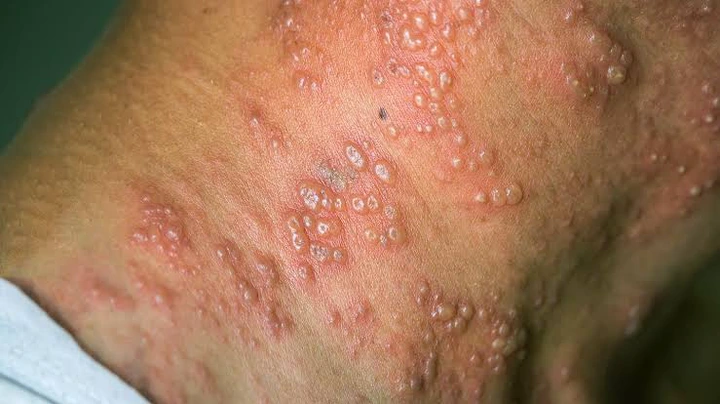Good Morning?
You will discover no signs or symptoms that can diagnose HIV; only an HIV test can. That being said, there are certain indications that suggest a person could have HIV. The signals can vary based upon whether a person with the serious (new) or serious (persistent) stage of infection.
Acute symptoms occur when the immune system wall mounts a defense against the virus as it first goes into the body. These kinds of early symptoms consequence from the human body’s reply to the herpes simplex virus and are labelled as acute retroviral affliction (ARS).
Serious symptoms occur when the virus arrives down your body’s the immune system defenses, leaving it open to infections. During the serious stage, many of these symptoms are non-specific, meaning that they are often caused by numerous things.
This information details several warning signs that may easily be missed if you have or have recently recently been diagnosed with HIV.
1. HIV rash
A rash is usually the first sign of HIV, although it only appears in 2 of every 5 newly infected people. The rash is distinct with large sections of flat, reddened skin peppered with tiny bumps. Typically the rash can be itchy or agonizing. Flu-like symptoms are also common.
The rash usually starts two to 6 weeks after exposure to the herpes simplex virus and will clear within one to two weeks. Typically the widespread rash mainly influences the shoe and face, but can sometimes appear on the forearms, legs, hands, and feet.
In the event you have extreme rash with flu-like symptoms two to six weeks after making love with a partner of unknown HIV condition, you may want to consider HIV just as one cause.
What Does indeed an HIV Break outs Resemble?
2. Inflammed Lymph Nodes
This kind of image contains content that a lot of people may find graphic or disturbing.
Swollen lymph systems (lymphadenopathy) can happen in the early on stages of HIV as the body attempts to wipe out the virus. it most often has a bearing on the lymph systems of the armpits, neck, groin, or behind the headsets. The swelling can sometimes be agonizing and even undesirable.
Even as one other signs of the acute infections clear, swollen lymph nodes can persevere in a lot of people for many weeks or months.
Lymphadenopathy is also normal with opportunistic attacks like tuberculosis as well as HIV-associated cancers.
Concerning Swollen Lymph Systems and HIV
3. Oral Thrush
This kind of image contains content that a lot of people may find graphic or disturbing.
Oral thrush (candidiasis) on top of the taste
One of many early on opportunistic infections in people living with HIV is verbal thrush. It is considered “opportunistic” because it seizes an opportunity to infect when the immune system is weak.
Oral thrush, also known as verbal candidiasis, is induced by a candida that can episode the inside of the mouth and throat. It could possibly have an impact on people who are relatively healthy but is a signal that immune system is breaking down.
If the breakdown of the immune system is severe, the candida can spread into the windpipe, lung area, and your blood vessels.
Oral a yeast infection does not automatically mean HIV, but it may guarantee an HIV test if you are at likelihood of infection.
Recap
Verbal thrush is one of the early on signs that your particular the immune system system is having a mechanical failure therefore of HIV.
4. Things to Find out about HIV Lymphadenopathy
Night Sweating
Night sweats, also known as sleeping hyperhidrosis, can appear either during the acute stage as the body quarrels the virus6 or during the serious phase therefore of an opportunistic infections.
Compared to just being sweaty, nights sweats are when your clothing and bedding are soaked in sweat, often soaking through and triggering shivers. Excessive sweating of this levels will certainly not be considered normal. almost eight
Night sweating can happen for other reasons, many of which are not serious (such as menopause) and others which can be (such cancer). 8 In the event you have drenching night sweats, have a tendency hesitate to contain it checked it out and about.
5. Night Sweats as a sign of HIV
Fat loss is common in individuals living with HIV in the state-of-the-art stages of the disease. This is not about the loss of merely a few pounds. This kind of is the quick, unexplained loss of 10% or more, in which both fat mass and lean muscle are lost.
As well known as HIV wasting syndrome, the illness is seen less often today owing to the use of antiretroviral drugs that keep the virus suppressed and allow immune system to rebuild itself. Wasting is mainly noticed in people who have not recently been treated for HIV.
The exact root cause of HIV totally wasting is unknown, but it is thought that the frequent inflammation caused by HIV enhances the swiftness at which energy is burnt and reduces testosterone levels needed to build lean body mass.
Different common causes of wasting include weakness, chronic diarrhea, hetiquez, and cancer, all of which require urgent diagnosis and treatment.
Recap
HIV wasting is the loss of 10% or more of body mass. It is linked to neglected, advanced HIV infections during which both fat and toned muscle mass are lost.
6. What Can be HIV Wasting Affliction?
A Physically Transmitted Infection (STI)
If you have a sexually transported infection (STI), there is a chance you could have HIV as well. The odds may be greater than you think.
Quite a few STIs like syphilis and herpes cause open sores that make it easier for HIV to enter our bodies. Some others like gonorrhea and chlamydia cause infection in the male organs that attracts the very immune skin cells (called CD4 Testosterone levels cells) that HIV likes to goal and infect. 15
Having syphilis can grow your risk of HIV up to 500%. 11 Different STIs can do the same. For the reason that of this, you will be tested for HIV if you test positive for any STI.
7. Unusual Ways in which STDs Maximize HIV Risk
In actual fact, the most frequent signal of HIV is not a symptom at all. This can be particularly true in the acute level, through which as many as two out and about of three people will be totally unaware of their condition.
In the course of the chronic level, the disease can be largely “silent, inches and any symptoms you have may be non-specific or mistaken for other health concerns.
Never assume that not having symptoms is the same thing as not having HIV. A defieicency of symptoms doesn’t suggest that your condition is “mild” or that your immunity mechanism just isn’t being harmed. That is.
If you are vulnerable to HIV, it is your interest to get it checked out and about by getting an HIV test.
By Postman
 Moni Malawi
Moni Malawi 

